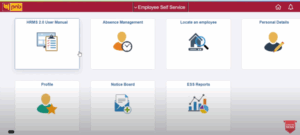How Can Health Businesses Manage Their Online Reputation?
The Importance of Online Reputation in Health Care
In the health industry, reputation is crucial. A strong online reputation can attract new patients and retain existing ones, while a poor one can drive them away. Today, more than ever, potential patients are turning to the internet to find and evaluate healthcare providers before making an appointment. Studies show that approximately 81% of patients read reviews about a provider even after they’ve been referred. This statistic highlights the importance of online reputation management in health care.
Building Trust with Patients
Trust is a fundamental component of any healthcare relationship. Patients need to feel confident in the quality and reliability of the care they receive. Positive online reviews and a good reputation can significantly influence a patient’s decision to choose a particular provider.
Competitive Advantage
In a highly competitive field, a strong online reputation can set a health business apart from others. It can be the deciding factor for patients when choosing between multiple providers. Managing your online reputation effectively ensures that your health business stands out in a positive light.
Strategies for Effective Online Reputation Management
To maintain a positive online reputation, health businesses need to adopt a proactive approach. Here are some strategies to help manage and enhance online reputation effectively.
Monitor Online Presence
Regular monitoring of what is being said online about your health business is crucial. This includes reviews on medical review sites, comments on social media, and feedback on your website. Keeping track of these mentions helps you understand the patient’s perspective and address any negative comments promptly.
Encourage Positive Reviews
Encouraging satisfied patients to leave positive reviews is a key strategy in online reputation management. After a patient visits, follow up with an email thanking them for choosing your service and gently encouraging them to share their experience online. Make sure to provide them with links to platforms where they can post their reviews.
Respond to All Reviews
Responding to reviews, both positive and negative, shows that your health business values patient feedback and is committed to improving service. Thank patients who leave positive reviews. Address negative reviews with professionalism and care—apologize where necessary and offer to resolve the issue offline. This can help mitigate the damage and show other potential patients that you are proactive about patient satisfaction.
Use Professional Help
Managing online reputation can be complex, especially with the nuances of patient privacy and the busy schedules of healthcare providers. Professional services that specialize in wellness reputation management can offer valuable support. These experts can help streamline the process of monitoring reviews, responding appropriately, and implementing strategies that enhance your reputation.
Handling Negative Feedback
Negative feedback, while challenging, provides an opportunity to improve and demonstrate commitment to patient care.
Learn from Criticism
View negative feedback as a chance to improve your services. Analyze the issues patients bring up and look for patterns. If certain complaints are recurring, it may indicate areas where your service could be enhanced.
Maintain Patient Privacy
When responding to reviews, especially negative ones, always keep patient privacy in mind. Never discuss specific health details or personal information in public responses. Offer to take the conversation offline to a more private setting where you can address the patient’s concerns directly.
Develop a Response Plan
Having a clear plan for how to respond to negative feedback is important. Train staff on the key points of this plan, including who responds to feedback, how to maintain confidentiality, and the tone and style appropriate for public responses.
Building a Strong Online Presence
Beyond managing reviews, building a positive online presence involves creating valuable content and engaging with the community.
Share Educational Content
Posting educational content related to health can position your business as a knowledgeable and trustworthy provider. This content can include blog posts, infographics, and videos that address common health issues, offer wellness tips, or explain medical procedures.
Engage Regularly on Social Media
Social media platforms are excellent tools for interacting directly with patients and the broader community. Regular posts, interactive Q&A sessions, and timely responses to comments can help build relationships and trust with current and potential patients.
Update Your Profiles
Ensure that all online profiles are accurate and up-to-date. This includes the business name, address, phone number, and services offered. Accurate information helps patients find and contact you easily, enhancing their overall experience and satisfaction.
Conclusion
Managing online reputation is essential for success in the health industry. By monitoring online feedback, encouraging positive reviews, responding thoughtfully to all reviews, and leveraging professional wellness reputation management services, health businesses can maintain and improve their reputations. Additionally, engaging with patients through educational content and social media can help solidify their trust and confidence in your services. Effective online reputation management not only attracts more patients but also contributes to a lasting positive image in the competitive healthcare market.

Pranab Bhandari is an Editor of the Financial Blog “Financebuzz”. Apart from writing informative financial articles for his blog, he is a regular contributor to many national and international publications namely Tweak Your Biz, Growth Rocks ETC.







